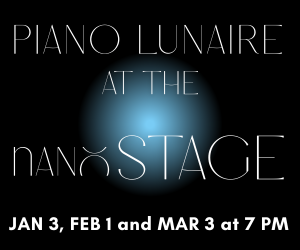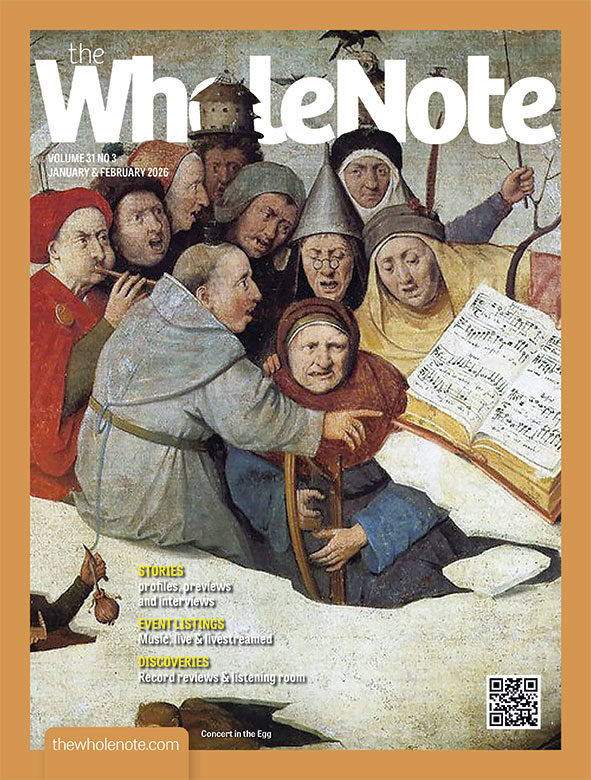I remember a while back, during Wimbledon maybe, a well-known violinist on the local scene (concertmaster for more than one orchestra) going on a Facebook rant about tennis, specifically the scoring system. His complaint was not about the way the scoring works – first to four points wins you a game (except you have to win by two points); first to six games wins you a set (except you have to win by two games); and a match is typically “best of three sets”, except in “major” tournaments, when the men play “best-of-five-set” matches, which can consequently end up running longer than Lohengrin.
But I digress. As I already said, Steve’s rant wasn’t about the scoring system itself, it was about the words intoned by priestly umpires to keep track of the score: why, he asked, say things like “15-love, 30-love, 30-15, 30-all, 40-30, game” when you could just say “1-0, 2-0, 2-1, 2-2, 3-2, game” instead?
It turned into one of those Facebook standoffs with lifelong lovers of the “sport of kings” berating the soulless Steve as roundly as though he were trying to eliminate Latin from the Mass; and on the other side of the net, his supporters praising his advocacy of the vernacular as a way of preventing those new to the sport feeling like intruders at some Masonic rite.
As best as I can remember, no one on either side of this “you’re taking the ‘love’ out of tennis” spat, suggested that tampering with tennis’ liturgy would be like changing adagio ma non troppo, e molto espressivo in a concert note for Beethoven’s Op.131 string quartet to something like slowly (but not too much), and with great feeling.
Now there’s a thought. What about it, Steve?
Quavers and crotchets
I clambered aboard this particular train of thought, by the way, as a result of musing about the pros and cons of different conventions for naming music notes: the quaintly mysterious ones I learned at age eight (“quavers”, “crotchets”, “minims” and “semibreves”); and the more mundane but practical language of eighth-, quarter-, half- and whole notes that now prevails. As a child, I could even wrap my brain around semiquavers, at a pinch. But demisemiquaver – “a note played for 1⁄32 of the duration of a whole note (or semibreve)”, Wikipedia calls it – had me hiding from my piano lessons in the treehouse in the backyard.
I actually have a lot more to say, at the very back of the magazine, about breves and semibreves – as a metaphor for the path that is our best hope of ensuring a viable future, potentially for many years to come, for both main strands of what we have brought to the local music scene for the last 29 years. But don’t rush! After all, it’s the content between this Opener and that Backstory that makes the real case for why our carrying on, with renewed vitality, would be a useful thing.
Side by each. Community partnerships
February/March is our first print issue of 2024, so this is our first opportunity to wish those of you who set your calendar to the return of the sun, a belated happy new year; and to wish those of you who will celebrate the Lunar New Year between February 10 and 17, great happiness and prosperity in the coming year.
The Toronto Symphony Orchestra is getting into the Lunar New Year spirit on February 13, with a concert titled "Year of the Dragon: A Lunar New Year Celebration". I mention this fact here because it provides a rather neat segue into picking up on the topic I covered in this spot last issue – the involvement of the Canadian Opera Company in Attila Glatz Production’s annual new year’s eve Bravissimo concert at RTH.
I mentioned it then as an example of actual artistic partnering.
The TSO’s February 13 concert is a large-scale exercise in community outreach. It also has embedded in it a more granular example of community partnering, less visible but equally interesting. Naomi Woo, who will conduct the concert, has been one of six conductors participating in Tapestry Opera’s three-year Women in Musical Leadership program (WIML). The program, as the Tapestry Opera website describes it, was designed “to address historic gender inequity on the podium by providing women and non-binary conductors active mentorship with leading conductors in the field, deep and varied experience with professional companies, and a robust artistic network.” Lead partners in the program are Pacific Opera Victoria and the TSO, so Woo’s February 13 TSO assignment fulfills one of the stated goals of the program.
There’s another glimpse into the nuances of the Tapestry/TSO relationship in this issue of the magazine: Dame Jane Glover, recently in town to conduct Messiah at the TSO, sat with Lydia Perović for a wide-ranging conversation, in which Glover mentions mentoring WIML participants as one of the elements of her Toronto visit.
Bimonthly publishing
I mentioned earlier that this February/March issue is our first of 2024. It also happens to be the first time we have ever combined these two months in a single issue. It’s part of an effort, through the course of 2024, to get our print publication dates locked into a bimonthly cycle (February/March, April/May, June/July, and so on) so we can complete the task of reducing the number of issues we print from eight to six in a way that works for our listings team, all the people who send us information about what they are up to, and our readers.
It’s taking a bit of getting used to, all round: as one example Women from Space’s conscientious publicist sent us full details of their sixth International Women’s Day weekend festival on January 22nd – perfect timing for a stand-alone March issue, but requiring a mad scramble for this one. For presenters too there’s a big difference in having to get listings to us 30 days earlier than they would have previously; as any battle-seasoned publicist will tell you, if there are going to be drastic changes to what seemed rock-solid two months ahead of an event, they will happen at the proverbial last minute.
So, do yourself, and us, a favour (if you are able to). Sign up for our weekly listings updates please! Details of how to do so are at the foot of page 34. You’ll get information about all the listings that have changed since we printed them, as well as any (and there will be many!) That came in too late to print.
We wish you a year of musical inspiration, solace and delight, and may what finds its way into these pages assist you in that quest.
David Perlman can be reached at publisher@thewholenote.com.




